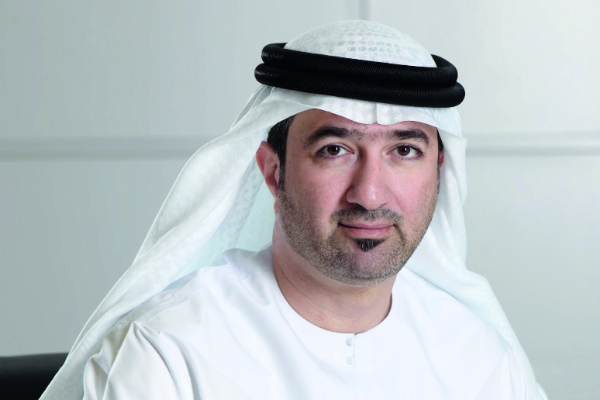The importance of talent development for our economic future
Ahmed Jasem Al Shamsi explains why STEM subjects are central to the development of the UAE

We are living in an age of disruption, with fast-paced technological change creating new economic opportunity.
That is why many parents worldwide see science, technology, engineering and mathematics (collectively known as STEM) as key to their children securing well-paid and future-proof careers. But actually it is even more important than that. STEM is the way whole countries like the United Arab Emirates will secure their economic future.
Our leaders recognise this fact, and have set targets in the UAE Vision 2021 to improve educational attainment in STEM subjects at our schools. This is the foundation on which to build a diversified, knowledge-based economy and enhance the competitiveness of our country.
Young UAE Nationals are certainly getting the message. A recent study commissioned by EGA and conducted by YouGov showed that 40 per cent of 18 to 24 year olds aspired to a career in these fields, compared to fewer than a quarter of their parents’ generation if they were able to choose their careers again today.
And an overwhelming majority of young and older people in the UAE see STEM careers as more likely to contribute to national development than careers in other fields, even if they do not plan to pursue these jobs themselves. There seems to be no doubt that STEM is the way forward for the UAE.
However only 21 per cent of Emiratis in government universities and 19 per cent in private universities were enrolled in STEM subjects in 2015, the most recent year for which figures are available. That compares to 40 per cent in Germany, according to a recent report by the Organisation for Economic Cooperation and Development.
How do we bridge this gap between understanding the importance of STEM, and young people actually making careers in these fields?
Our survey provides some of the answers, and what we need to do is quite simple – but quick action needs to be taken to ensure we do not fall behind as the rest of the world swiftly embraces STEM to forge ahead.
Some 68 per cent of young respondents surveyed said that they could be motivated to pursue a career in STEM if they had access to role models who had already taken this path to act as mentors and on-the-job training opportunities.
Industrial companies like EGA clearly have a significant opportunity and responsibility to take the lead in providing what young people are asking for as they consider their STEM career options. Experienced practitioners in companies can offer a wealth of information and insights – placing them front and centre as role models that young people would like to engage with to better understand employment options.
Another strong motivation is on-the-job training. At EGA we take this responsibility seriously, with more than120 Emirati graduates currently on our graduate trainee scheme, primarily in STEM fields, and a various technical National Trainee Apprenticeship Schemes well established.
Students on the cusp of making career choices can also benefit from work experience opportunities, as it affords them a glimpse into the real-life benefits of a challenging yet rewarding job in industrials. This exposure is key to correct possible misconceptions about STEM careers, including low pay and poor work-life balance.
It also broadens students’ perceptions about their options in STEM. Providing some insight into the breadth of STEM work was one of the main reasons we recently launched a national programme called ‘engineer the future’, which provides high school students with interactive educational sessions on the aluminium industry and the fundamental science upon which it is based.
While these measures may seem common sense, our survey clearly shows that we need to ask ourselves to do more of this as an industry and a country.
I believe industrial companies must re-double our efforts to encourage young people into STEM careers, and it is truly imperative that the private sector comes together to show our young people what it means to be a professional in a science, technology, engineering or maths field.
We have self-interest in doing so, and also an obligation to the nation.
Ahmed Jasem Al Shamsi is executive vice president at Emirates Global Aluminium
